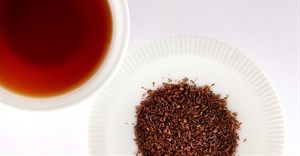#AfricaMonth
Trending





 Netflix reaches 40m users for ad supported planKarabo Ledwaba
Netflix reaches 40m users for ad supported planKarabo Ledwaba
Elections 2024
Transkei tea production ‘not viable'
A report tabled by the portfolio committee on agriculture and rural development found that tea production was not viable in South Africa because of a South African Development Community (SADC) agreement to import tea from Kenya and Malawi.
“The lack of viability results in the Magwa and Majola estates being heavily reliant on the Department (of Agriculture and Rural Development) for salaries,” said the report, tabled by portfolio committee chairman Phila Nkayi.
On Thursday Nkayi said no proceeds had been realised from the Majola Tea Estate in Port St Johns and Magwa Tea in Lusikisiki. “If you continue like that, at some stage we will have to consider closing.”
Nkayi also said the department should consider planting alternative crops at the estates if the national department could not win better prices in trade negotiations.
The Bhisho Legislature has now taken a resolution that the Agriculture and Rural Development Department seriously look into the tea estates' plight.
“The department must look at all options, including lobbying national government to negotiate with SADC for fair trade practices and investigate the possibility of producing other suitable crops,” reads the resolution.
Ian Crawford, of the Magwa Tea Estate, said the Bhisho Legislature was “kind of correct” in its assessment, but had the estate received funding as promised last year it would have shown profit.
“For smaller tea estates, they are not viable. For bigger estates and Magwa is the biggest in South Africa, I believe it is viable if you have mechanical harvesting.
“We have not been given an opportunity or the funding to implement our ideas.”
At present all tea was being harvested by hand.
“If you reduce the amount of plucking and start some form of mechanical harvesting, that will speed up the profitability of Magwa.”
Crawford added that they were not competitive with other estates outside the country because of the salaries paid to workers.
“The minimum wage is around R60 a day for a general worker in agriculture. In Malawi and Zimbabwe the daily minimum wage is about R6. We tend to be much more expensive on our wage bill,” he added.
Majola Tea could not be reached for comment.
The estates have in the past years faced financial challenges, and on many occasions they had to be bailed out by the government.
The Daily Dispatch has previously reported that the estates were on the brink of closure amid global market prices and the failure of promised funding from the Eastern Cape government to reach its empty coffers.
In February this year, the Dispatch reported that government funding for the project had dried up, negatively affecting the estate's ability to sustain itself.
Source: Daily Dispatch
Published courtesy of












